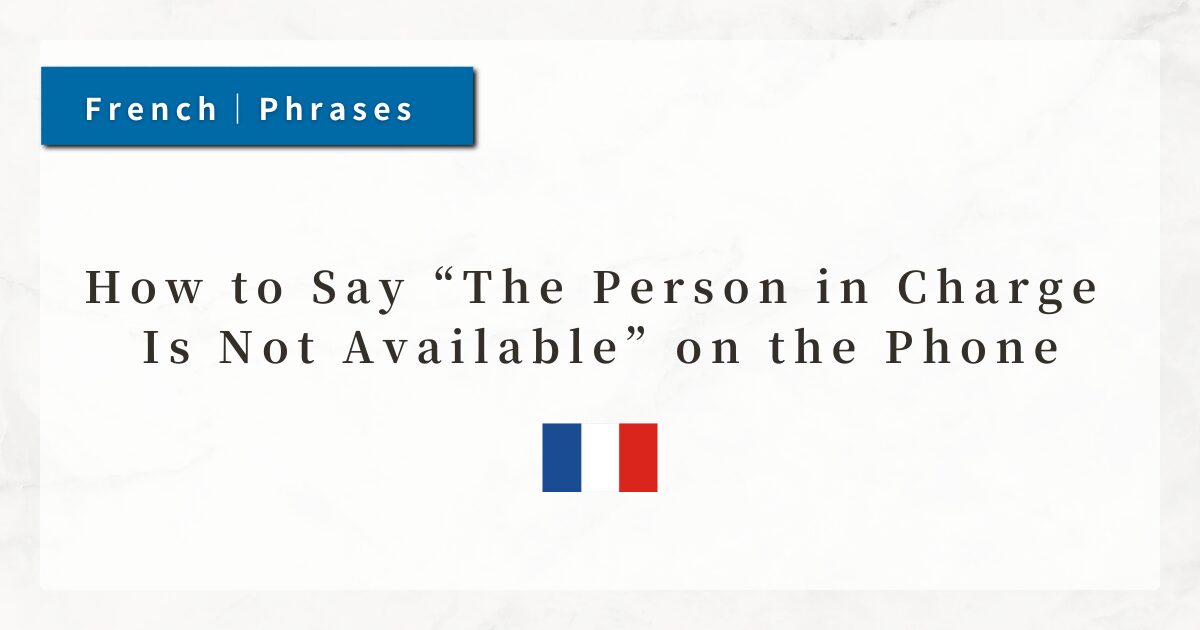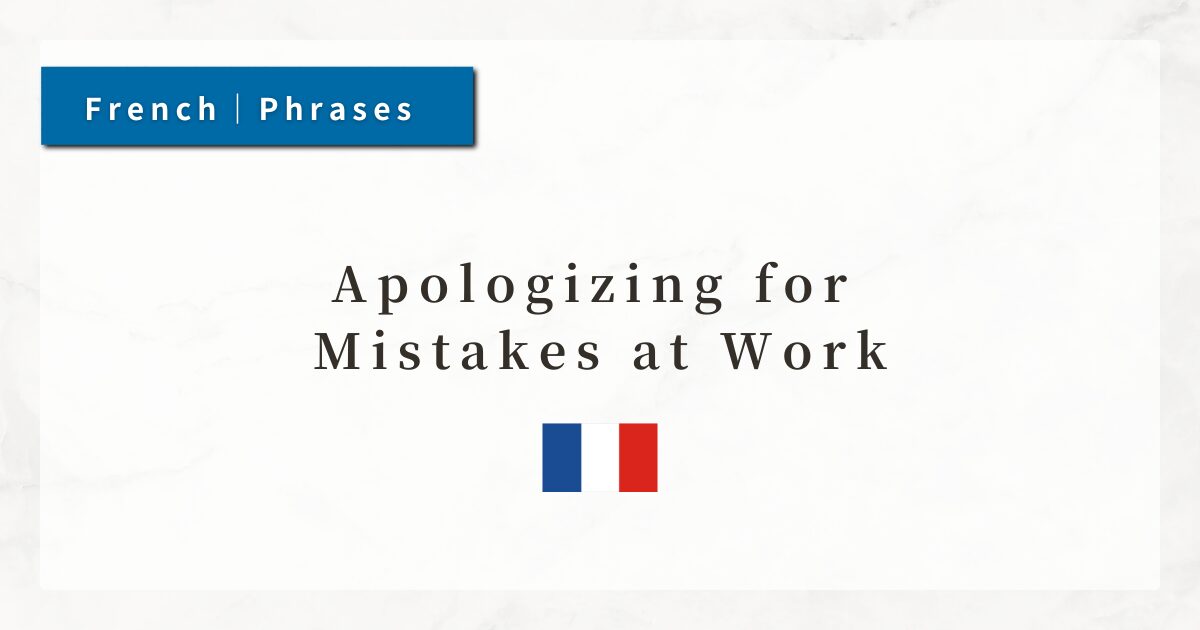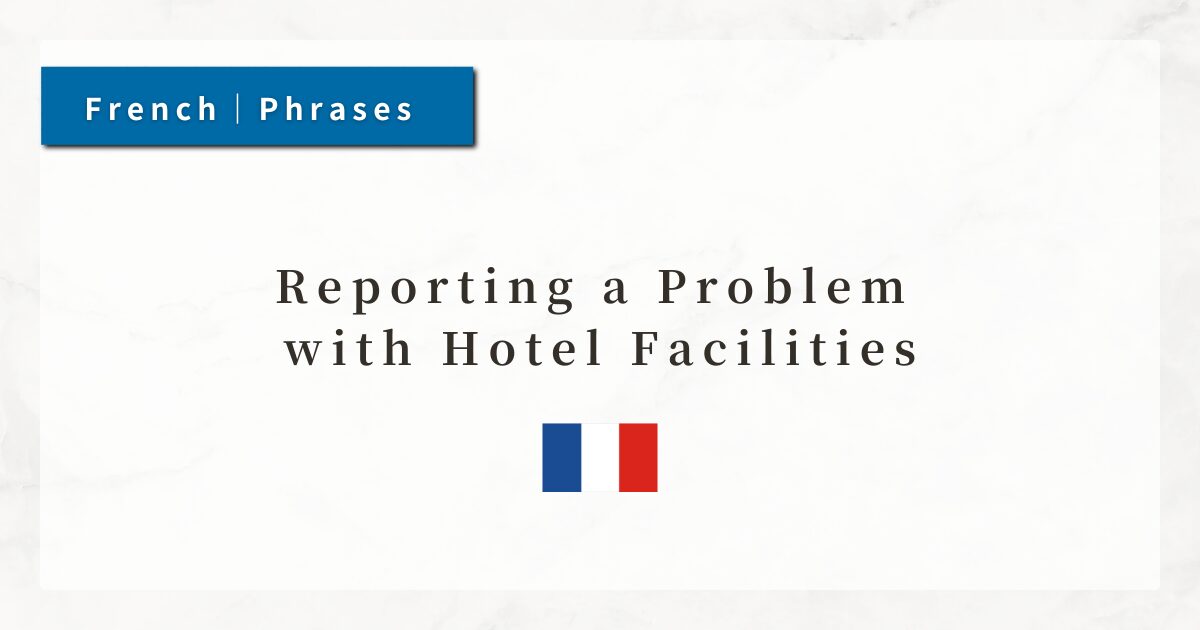#4 Example Dialogues for Asking About Bus Delays|Everyday French Expressions

When traveling or studying abroad, it is not uncommon to encounter situations where a bus does not arrive on time. In France, delays can occur due to transportation strikes, weather conditions, or traffic issues.
In such cases, it is helpful to know how to ask, “Is the bus delayed?” when speaking to staff, the driver, or fellow passengers.
In this lesson, I will introduce useful expressions for confirming a bus delay, along with sample responses.
Dialogue

Bonjour, excusez-moi. Est-ce que le bus 45 est en retard ?
(Hello, excuse me. Is bus number 45 delayed?)

Oui, il a environ 10 minutes de retard.
(Yes, it is about 10 minutes late.)

D’accord, merci. Il arrive bientôt ?
(Alright, thank you. Will it arrive soon?)

Normalement oui, il est à l’arrêt précédent.
(Normally yes, it is at the previous stop.)

Très bien, merci beaucoup.
(Alright, thank you very much.)

Je vous en prie.
(You’re welcome.)
1. Asking About Delays with “Est-ce que … ?”
“Est-ce que le bus 45 est en retard ?” is a simple Yes/No question: “Is bus number 45 delayed?”
- Est-ce que le bus 45 est en retard ?
(Is bus number 45 delayed?)
Using “Est-ce que” is highly recommended for beginners, because it allows you to form questions without changing word order.
- Est-ce que
→ fixed expression introducing a question (not translated directly) - le bus 45
→ subject (“bus number 45”) - est en retard
→ predicate (“is late/delayed”)
This structure can be applied to other contexts:
- Est-ce que le train est en retard ?
(Is the train delayed?) - Est-ce que votre ami est en retard ?
(Is your friend late?)
2. Expressing Delay with “avoir … minutes de retard”
In French, delays are expressed with avoir (“to have”), as if the bus “has” a certain amount of delay.
- Le bus a 10 minutes de retard.
→ “The bus has 10 minutes of delay” = “The bus is 10 minutes late.”
The adverb environ (“about, approximately”) is also common:
- Le train a 20 minutes de retard.
(The train is 20 minutes late.) - Il a environ 5 minutes de retard.
(It is about 5 minutes late.)
3. Asking About Arrival: “Il arrive bientôt ?”
This expression literally means “Is he (the bus) arriving soon?”
- Il arrive bientôt ?
(Is he arriving soon?)
In casual conversation, French speakers often rely on intonation rather than full question forms:
- Tu vas à l’école ?
(You’re going to school?)
4. Describing the Bus’s Current Location
This phrase uses the structure “être à …” (“to be at …”) to explain location.
- Il est à l’arrêt précédent.
(it is at the previous stop.)
Vocabulary tip:
- précédent
→ previous - suivant
→ next
Summary
- Est-ce que le bus est en retard ?
→ Basic Yes/No question to ask about a bus delay. - Il a environ 10 minutes de retard.
→ Standard structure with avoir to indicate delay. - Il arrive bientôt ?
→ Casual way to ask “Is it arriving soon?” - Il est à l’arrêt précédent.
→ Useful structure for describing the current location. - Je vous en prie.
→ Polite response meaning “You’re welcome.”




